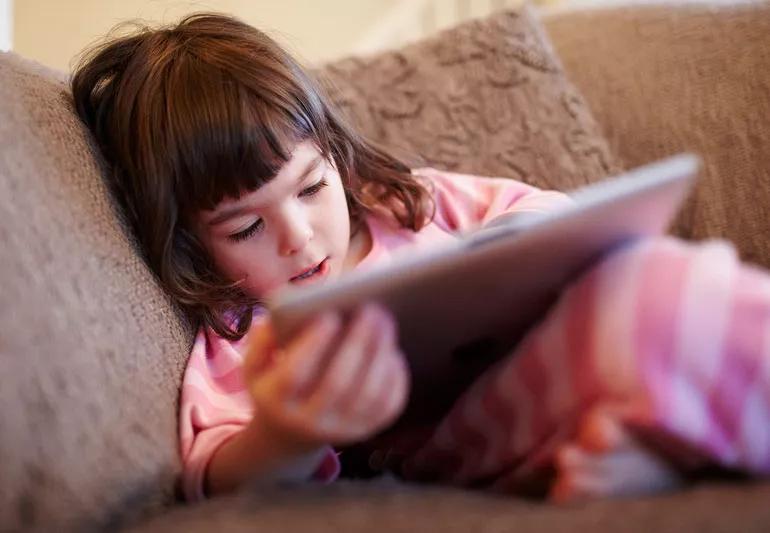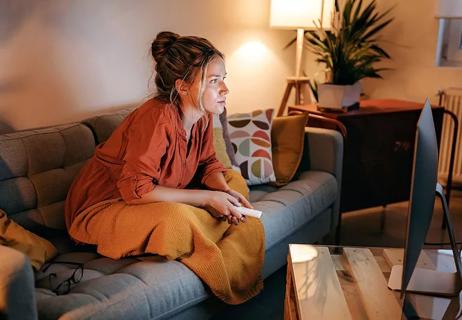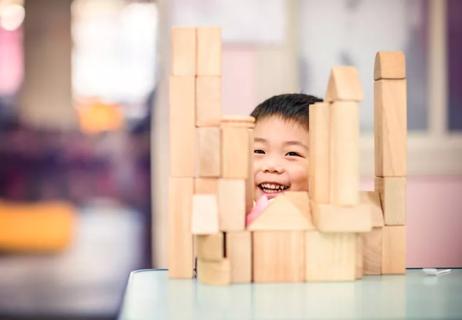New study looks at the use of devices in preschoolers

It all adds up. The cartoon while eating breakfast. Watching YouTube while you cook dinner. And then, again after bath time before bed?
Advertisement
Cleveland Clinic is a non-profit academic medical center. Advertising on our site helps support our mission. We do not endorse non-Cleveland Clinic products or services. Policy
Preschool age kids shouldn’t have more than one hour of screen time a day, according to the American Academy of Pediatrics. But a new study examined whether excessive screen time during preschool years has an impact on a child’s development.
The study looked at 2,441 children and their screen time use from birth to age 5.
Pediatrician Skyler Kalady, MD, didn’t take part in the research, but says the results indicate that early exposure does impact development for preschoolers ― and not in a good way.
“Early exposure to excessive screen time at 24 months was predictive of lower developmental outcomes at 36 months,” Dr. Kalady notes. “And similarly, increased screen time exposure at 36 months also was related to decreased developmental outcomes at 60 months.”
A developing mind is in a critical phase during the very early years, Dr. Kalady explains.
Children, especially those under age 5, need to explore their environments and develop motor skills by moving around and being curious. That isn’t happening if they are spending all of their time looking at an electronic device.
Dr. Kalady says parents often don’t give themselves enough credit that they are able to teach their children better than a device can.
Advertisement
All of these little developmental cues, they take so much time to build up. And while a lot of well-meaning caregivers think that perhaps technology might even be able to teach their child better or more effectively, it really seems that is not the case.
The early years are critical for children to spend quality face-to-face time with parents and caregivers, Dr. Kalady points out. This time together enables children to learn how to interact both verbally and nonverbally.
“Just sit down with your child, or chase them around and let them explore their environment ― even if it’s a little bit exhausting,” she says. “When they are quiet, read them a book or play with ‘old school’ toys like blocks and puzzles, toys without electronic parts. This allows children to explore, be curious and learn the best.”
It’s helpful to set up limits and expectations early, Dr. Kalady notes. That’s because it’s easier to start off with healthy screen time habits than it is to scale back once you’ve already begun.
But, she reassures, it’s important to remember that no parent is perfect. At any point, you can always take a step back, do a re-set and make a new plan that works best for your family going forward.
Complete results of the study can be found in JAMA Pediatrics.
Advertisement
Learn more about our editorial process.
Advertisement

Too much blue light, especially from digital sources, may lead to eye strain and computer vision syndrome

When done in excess, watching TV can disrupt your sleep and lead to physical inactivity and social isolation

Imagination, completing tasks and social interactions are all key benefits for your brain

It can affect your child’s development, but not in a way you might think

An expert shares when it’s time to limit your kids’ tablet or TV time

Gamers should approach esports with an athlete’s mindset

How taking in too many gruesome stories can impact your well-being

How to avoid excessive online + gaming — from toddlers to teens

If you’re feeling short of breath, sleep can be tough — propping yourself up or sleeping on your side may help

If you fear the unknown or find yourself needing reassurance often, you may identify with this attachment style

If you’re looking to boost your gut health, it’s better to get fiber from whole foods